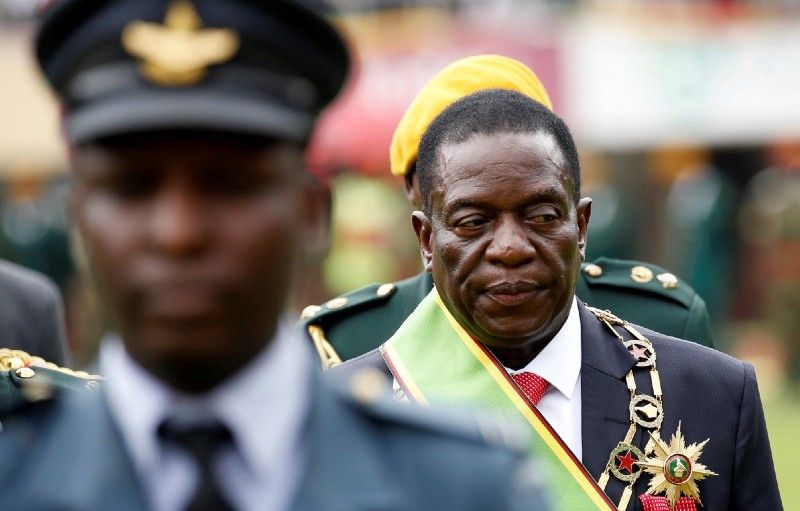December 01, 2017
Meet Zimbabwe’s new president, Emmerson Mnangagwa. Known as “the crocodile,” Mnangagwa is often described as smart, quiet, and cruel. Thought to be 75 years old, though that’s a subject of some controversy, he proved vigorous enough to bring down political titan Robert Mugabe when the aging ruler fired him as vice president on November 6 to clear a succession path for his wife. Mnangagwa says Mrs. Mugabe recently tried to kill him with poisoned ice cream.
Where did Africa’s newest leader come from? To challenge white rule in his country, then known as Rhodesia, he got his military training in Mao’s China and Nasser’s Egypt. He was captured and tortured by Rhodesian authorities. After ten years in prison, he practiced law in Zambia, served as Mugabe’s bodyguard in Mozambique, and then helped lead his country to independence in 1980. In the decade that followed, he led the security services, helping Mugabe spy on the Zimbabwean people. Mnangagwa has been accused at various times of ordering attacks on opposition leaders and civilians. Like Mugabe, he’s variously described as liberator and murderer. His name is associated with atrocities and blood diamonds. For now, he has the support of the men with the guns.What sort of president will he be? Most likely a smart, quiet, and cruel one. Sadly, he’s unlikely to make the Zimbabwean 20 trillion dollar note I keep on my desk much more valuable than the paperclips sitting next to it. It takes more than ice cream to kill a crocodile, and more than a change of president to mend a badly broken society.
More For You
Think you know what's going on around the world? Here's your chance to prove it.
Most Popular
Donald Trump alongside Nigel Farage amid a television interview at his Trump Turnberry course in South Ayrshire during his visit to the United Kingdom, on May 3, 2023.
PA via Reuters
The US government will reportedly fund MAGA-aligned parties and think tanks in Europe. But with US President Donald Trump’s favorability in Europe so low, do they even want the money?
- YouTube
Zelensky agrees: elections matter #PUPPETREGIME
As more small businesses move sales, payments, and customer relationships online, they unlock new opportunities, but they also become easier targets for cyber-criminals and other threat actors.
© 2025 GZERO Media. All Rights Reserved | A Eurasia Group media company.
